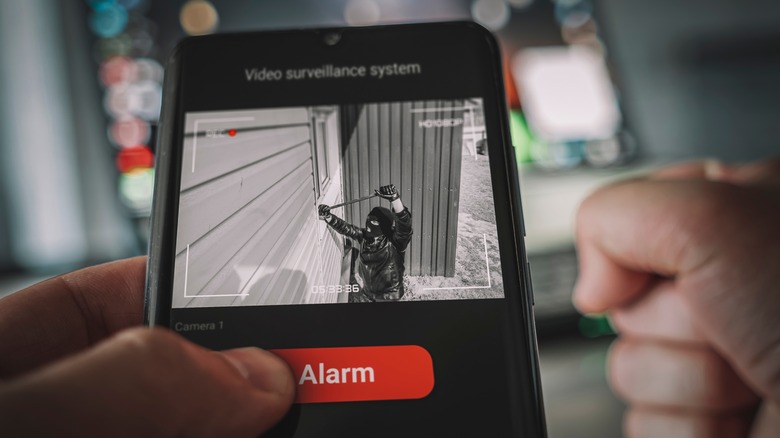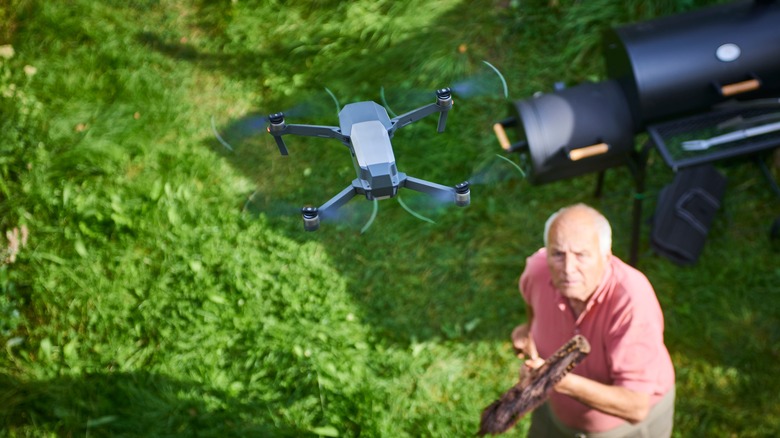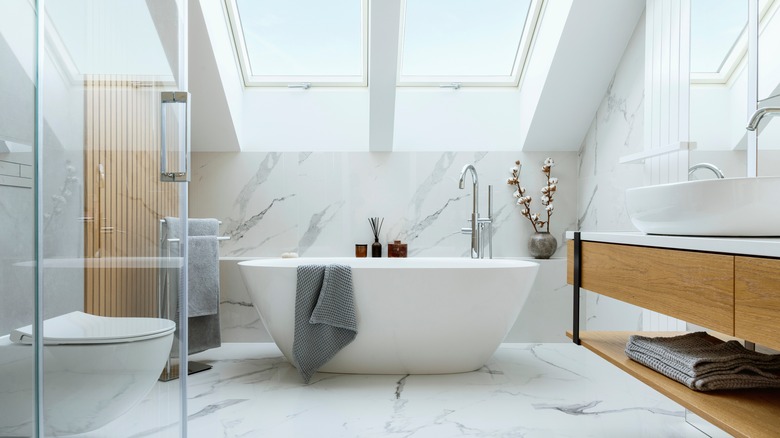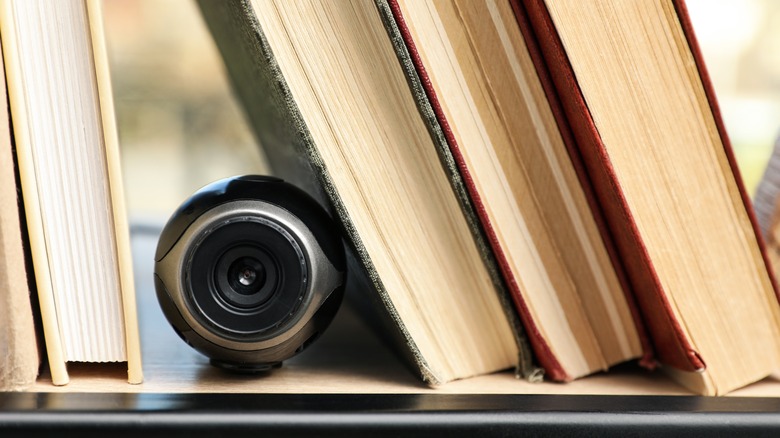The Worst Spots To Install A Home Security Camera
Security cameras offer a layer of protection that can't be easily matched through other home defense options. Cameras both signal danger for a would-be intruder through their presence, and can record the evidence of a crime for a homeowner to review later on. This evidence can lead to breakthroughs in a case when other avenues of investigation dry up. Simply put, a security camera is both a means of deterrence and a key resource in righting a wrong.
However, there are some essential considerations to make when installing security cameras around your home. First and foremost, it's essential to place a network of cameras in a position that will actually facilitate helpful image capture. Cameras that point into bushes or exhibit blind spots created by sharp angles likely won't do much to help prevent a crime or remedy a loss.
Similarly, if you are installing cameras in or around your home you'll need to think of the typical lighting conditions that the recording equipment will be subjected to. A low light camera is an important addition in external settings for nighttime filming, for instance.
Positioning, however, is half the battle. Getting your cameras set in a pattern that creates a wide field of view and displays your efforts prominently is the best way to go. In order to do this, there are three installation areas to avoid.
Facing neighbors' yards and homes
The first place you should avoid when placing security cameras is in arrangements that primarily (or prominently) capture your neighbors' properties. A camera pointed over the fence is a shot across the bow. It only serves to drum up conflict between you and those who live next to you.
A camera pointed at a space that isn't your property won't help deter a breach in your home, because it won't capture the burglars in the act. The lens may be obviously tilted elsewhere, giving burglars confidence that your home isn't effectively guarded. A poor security cordon not only offers easy penetration, but it may also draw bad actors onto you. Security cameras may be a sure sign that valuables can be found in the home, and a poor perimeter defense means that this treasure is ripe for the picking.
Not only does this create a grave security concern in your own home, it may even form an illegal surveillance effort if your cameras point in through the windows of a neighbor's home. Whether you mean to or not, positioning cameras in this way will frost those who you are meant to forge close bonds with, souring the welcoming neighborhood experience that virtually everyone wants to enjoy.
Private areas of the home
Another no-go area in the house is bathrooms, bedrooms, and other spaces that are generally private. The bathroom is a particularly invasive place to put a camera, and in public spaces, this is a textbook example of a private space that cannot house a security camera. They aren't allowed in public areas where people expect privacy, like changing rooms and bathrooms.
In the home, a bathroom security camera isn't strictly illegal, but the presence of one will certainly make guests and even members of your own household uncomfortable. The same goes for the bedroom. A security camera in the corner of the room only really serves to add a level of tension to the room that simply isn't necessary.
Instead, homeowners should consider means that provide a secure storage option for their valuable belongings, like jewelry. You might also consider placing security cameras in hallways or in external positions that cover the windows or doorways to these private spaces (but don't peer inside or around them).
Brinks notes that a security camera placed in a bathroom would present a complex legal case in the event that its footage was used to apprehend a burglar. While the bathroom is a part of the home that is universally understood to be private — and therefore shouldn't have recording equipment inside it — there is a unique caveat here. A burglar illegally entering your home also shouldn't enjoy the same right to privacy while in this space.
In any covert space that masks the camera's presence
It might be tempting to install hidden security systems that ensure video capture of malfeasance in or around your property. However, this type of covert security (in contrast to overt measures) is only valuable in a narrow band of use cases. Police investigations, for instance, might utilize covert recording equipment in order to track drug smugglers up the chain of command. An overt data capture operation would alert the entire group to the surveillance and foil the effort.
In the realm of home security, foiling a would-be intruder's efforts is the goal. Instead of seeking to guarantee that you capture surveillance footage, a security system should work as a flex of your home's defensive muscles, preventing a breach in the first place. A wide range of studies show that visible surveillance infrastructure is highly effective in preventing planned criminal activities such as burglaries.
Instead of hiding your cameras, place them underneath or directly adjacent to exterior lights around the perimeter of your home. This makes them highly visible from any point around your home: If the camera can see you, you can and will see it.



